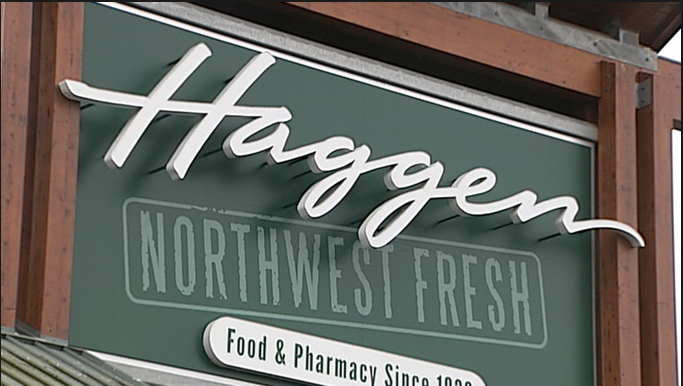Peninsula Daily News
news services
BELLINGHAM — The Haggen grocery chain that took over numerous Albertsons supermarkets, including the one in Port Angeles earlier this year, has filed for Chapter 11 bankruptcy protection.
Chief Executive John Clougher said the action will allow the Bellingham-based company to continue to operate while enabling the grocer to “realign” its operations.
Haggen, which filed for bankruptcy protection in the U.S. Bankruptcy Court for the District of Delaware, has received commitments for up to $215 million in debtor-in-possession financing from its existing lenders to continue operating and maintain inventory while it reorganizes its operations and assets and sells some of its stores, Clougher said in a company statement released Tuesday night.
While the company didn’t specify how many stores it would sell, the statement said Haggen would focus its reorganization on profitable “core” stores, and that it is in talks to sell “many of the company’s remaining assets.”
The bankruptcy action follows a difficult transition that began earlier this year when Haggen took over 146 stores shed by Albertsons and Safeway in the wake of their merger, mostly in California, Nevada and Arizona — markets where the then-18-store Pacific Northwest grocer was unknown. Haggen has since laid off employees, closed stores and become embroiled in lawsuits.
The Port Angeles Haggen store is at 114 E. Lauridsen Blvd.
“After careful consideration of all alternatives, the company concluded that a reorganization through the Chapter 11 process is the best way for Haggen to preserve value for all stakeholders,” Clougher said.
“The action we are taking today will allow us to continue to serve our customers and communities while providing Haggen with a process to realign our operations to be positioned for the future.”
Discussions are underway with interested parties to sell many of the company’s remaining assets, Clougher said.
Haggen will be using Sagent Advisors to “market for sale some locations in the five states it operates and to explore market interest for various store locations,” the company said in a statement.
Haggen is seeking court approval to continue employee wages and certain benefits and to honor certain customer programs. The motions are expected to be addressed by the court in the coming days.
The bankruptcy filing lists Haggen’s creditors, including distributor Unified Grocers, vendors like Coca-Cola and Frito Lay, and money transfer service MoneyGram. The final creditor listed is Albertsons, and the amount owed, for litigation, is listed as disputed and undetermined, according to the Oregonian newspaper.
Haggen recently sued Albertsons for $1 billion claiming it did not fulfill terms of the purchase agreement.
The Seattle Times reported that last month the company began cutting worker hours in the Seattle area and undertook hundreds of layoffs and work-hour reductions in California, Arizona and Nevada.
Haggen was also sued for $41.1 million by Albertsons, which alleges that Haggen didn’t pay for part of the inventory that came with the stores, The Seattle Times said, adding that Haggen officials say the lawsuit came in response to its own allegations that Albertsons violated the purchase agreement for the stores.
Haggen announced plans last month to close or sell 27 stores. The only Washington state store slated for closure is in Spanaway, near Tacoma, according to Haggen. Other targeted stores are in California, Arizona, Nevada and Oregon.
Chapter 11
Chapter 11 is a chapter of Title 11 of the United States Bankruptcy Code. When a business is unable to service its debt or pay its creditors, it can file in federal bankruptcy court for protection under either Chapter 7 or Chapter 11.
In Chapter 7, the business ceases operations, a trustee sells all of its assets, and then distributes the proceeds to its creditors. Any residual amount is returned to the owners of the company. In Chapter 11, in most instances, the company remains in control of its business operations as “a debtor in possession” and is subject to the oversight and jurisdiction of the court.
Chapter 11 gives “the debtor in possession” a number of ways to restructure its business.
.

